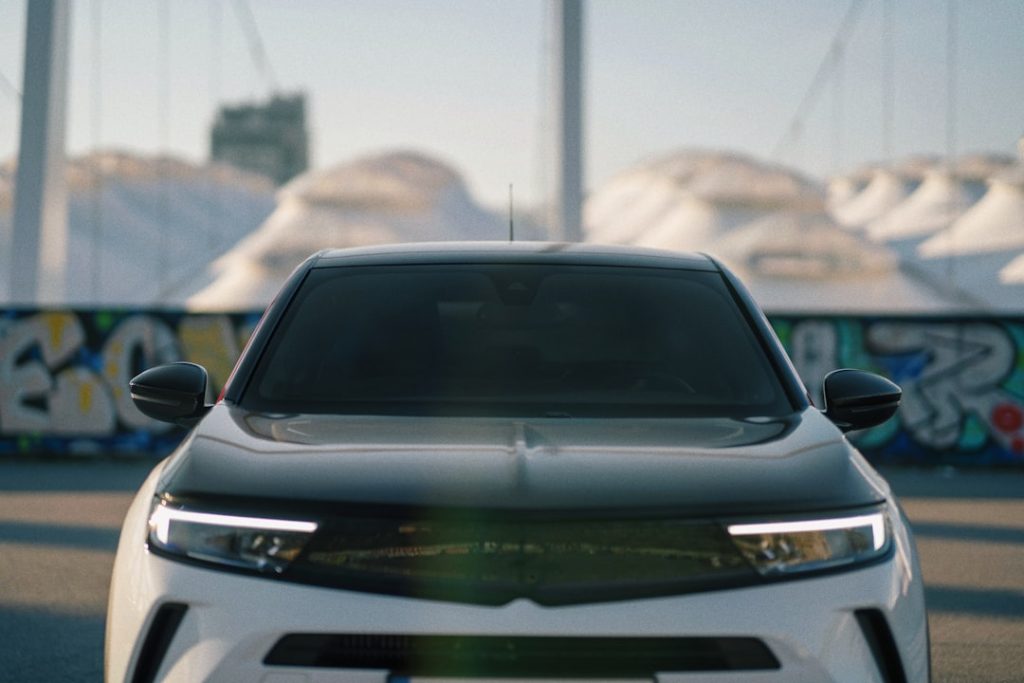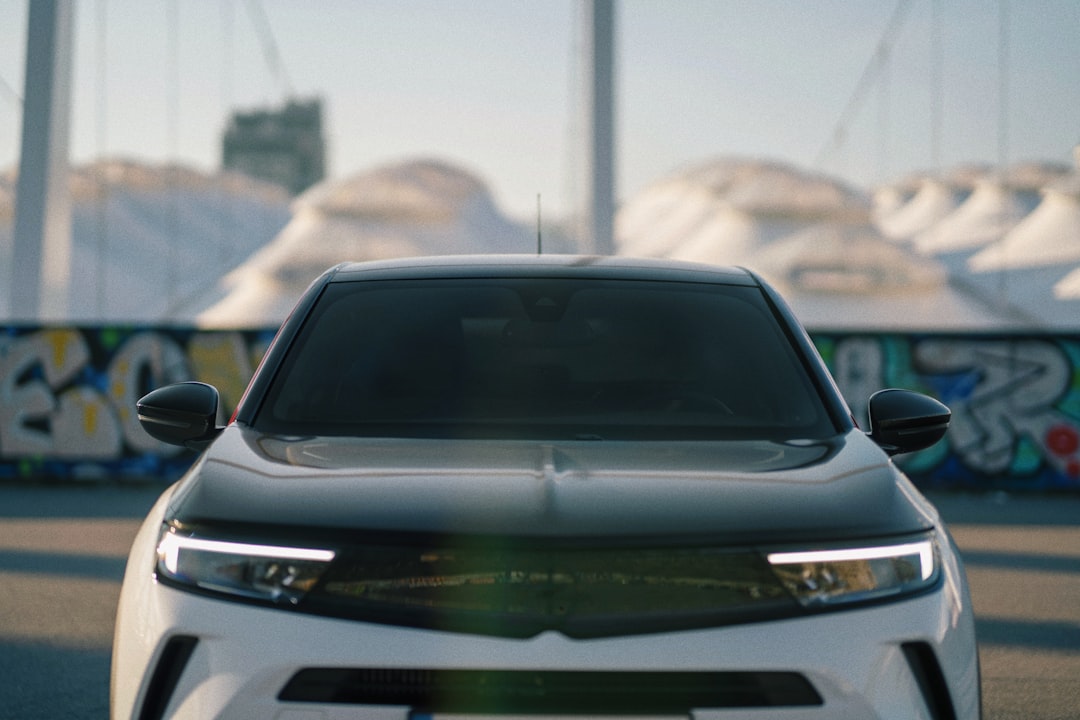Branding in the automotive industry is not merely about a logo or a catchy slogan; it encapsulates the entire perception of a vehicle and its manufacturer in the minds of consumers. Car marketing agencies play a pivotal role in shaping this perception by developing a cohesive brand identity that resonates with target audiences. A strong brand identity can differentiate a car manufacturer from its competitors, creating an emotional connection with potential buyers.
For instance, brands like Tesla have successfully established themselves as innovators in the electric vehicle market, leveraging their branding to convey sustainability, cutting-edge technology, and luxury. This strategic positioning has not only attracted environmentally conscious consumers but has also fostered a loyal customer base that identifies with the brand’s mission. Moreover, car marketing agencies utilize various tools and techniques to reinforce brand identity across multiple platforms.
They conduct extensive market research to understand consumer preferences and behaviors, which informs the development of brand messaging and visual elements. By creating a consistent narrative that aligns with the brand’s values, agencies ensure that every advertisement, social media post, and promotional event reflects the desired image. For example, BMW’s “Ultimate Driving Machine” slogan encapsulates its commitment to performance and driving pleasure, while its marketing campaigns often feature dynamic visuals that evoke excitement and luxury.
This consistency not only strengthens brand recognition but also builds trust among consumers, making them more likely to choose that brand when considering a vehicle purchase.
Key Takeaways
- Strong branding by car marketing agencies builds lasting brand identity and customer loyalty.
- Targeted strategies ensure marketing efforts reach the most relevant potential car buyers.
- Digital marketing, including social media and online ads, plays a crucial role in boosting car sales.
- Creative and memorable campaigns effectively capture consumer attention and drive engagement.
- Measuring campaign performance helps maximize return on investment and optimize marketing strategies.
Targeting the Right Audience: Strategies for Reaching Potential Car Buyers
Identifying and targeting the right audience is crucial for any successful car marketing campaign. Car marketing agencies employ a variety of strategies to ensure that their messages reach potential buyers effectively. One of the most effective methods is demographic segmentation, which involves categorizing potential customers based on factors such as age, income, location, and lifestyle.
For instance, a luxury car brand may focus its marketing efforts on affluent individuals aged 30-55 who value prestige and performance, while a budget-friendly brand might target younger consumers seeking affordability and practicality. By tailoring messages to specific demographics, agencies can create more relevant and impactful campaigns. In addition to demographic segmentation, psychographic profiling is another powerful tool used by car marketing agencies.
This approach delves deeper into consumer motivations, interests, and values. For example, a marketing agency might identify a segment of environmentally conscious consumers who prioritize sustainability in their purchasing decisions. By highlighting features such as fuel efficiency or eco-friendly materials in their campaigns, agencies can effectively engage this audience.
Furthermore, utilizing data analytics allows marketers to track consumer behavior and preferences in real-time, enabling them to adjust their strategies dynamically. This adaptability ensures that marketing efforts remain aligned with evolving consumer interests and trends.
Leveraging Digital Marketing: The Role of Social Media and Online Advertising in Car Sales

In today’s digital age, social media and online advertising have become indispensable tools for car marketing agencies. The rise of platforms like Facebook, Instagram, and Twitter has transformed how brands interact with consumers, allowing for more direct engagement and personalized communication. Car manufacturers can showcase their vehicles through visually appealing content, such as high-quality images and videos that highlight features and performance.
For instance, brands like Ford have successfully utilized Instagram to share stunning visuals of their latest models while engaging with followers through interactive content like polls and Q&A sessions. Online advertising also plays a critical role in reaching potential car buyers. Search engine marketing (SEM) and pay-per-click (PPC) campaigns enable car brands to target specific keywords related to their vehicles, ensuring that their ads appear when consumers are actively searching for cars online.
Remarketing strategies further enhance this approach by displaying ads to users who have previously visited the brand’s website or engaged with their content. This targeted advertising not only increases visibility but also drives traffic to dealership websites, ultimately leading to higher conversion rates. The ability to track metrics such as click-through rates and conversion rates allows agencies to refine their strategies continuously for optimal results.
Creating Compelling Campaigns: The Art of Crafting Memorable and Effective Car Advertisements
| Metric | Description | Typical Range | Importance |
|---|---|---|---|
| Ad Recall Rate | Percentage of viewers who remember the ad after exposure | 30% – 70% | High |
| Click-Through Rate (CTR) | Percentage of viewers who click on the ad link | 0.5% – 3% | Medium |
| Engagement Rate | Likes, shares, comments relative to total views | 1% – 10% | High |
| Conversion Rate | Percentage of viewers who take desired action (e.g., test drive booking) | 2% – 8% | Very High |
| Brand Lift | Increase in brand awareness and favorability post-campaign | 5% – 20% | High |
| Cost Per Acquisition (CPA) | Cost to acquire a customer through the campaign | Varies by market | Medium |
| Emotional Impact Score | Qualitative measure of emotional connection with audience | Scale 1-10 | High |
| Message Clarity | Audience understanding of the ad’s core message | 80% – 95% | Very High |
Crafting compelling advertisements is both an art and a science in the automotive industry. Car marketing agencies must balance creativity with strategic messaging to create campaigns that resonate with consumers. One effective approach is storytelling, which allows brands to connect emotionally with their audience.
For example, Honda’s “The Power of Dreams” campaign emphasizes the brand’s commitment to innovation and creativity by showcasing real-life stories of individuals whose lives have been positively impacted by Honda vehicles. This narrative-driven approach not only highlights the brand’s values but also fosters an emotional connection with potential buyers. Visual elements are equally important in creating memorable advertisements.
High-quality imagery and engaging video content can capture attention quickly in a crowded marketplace. Agencies often collaborate with talented photographers and videographers to produce visually stunning advertisements that showcase vehicles in dynamic settings. For instance, Audi’s advertisements frequently feature sleek cars navigating picturesque landscapes or urban environments, emphasizing both luxury and performance.
Additionally, incorporating user-generated content into campaigns can enhance authenticity; showcasing real customers enjoying their vehicles can create relatable moments that resonate with potential buyers.
Maximizing ROI: Measuring the Effectiveness of Car Marketing Campaigns and Strategies
Measuring the return on investment (ROI) of car marketing campaigns is essential for understanding their effectiveness and guiding future strategies. Car marketing agencies utilize various metrics to evaluate campaign performance, including sales figures, website traffic, lead generation, and customer engagement levels. By analyzing these data points, agencies can determine which aspects of a campaign were successful and which areas require improvement.
For example, if a particular advertisement leads to a significant increase in website visits but does not convert into sales, it may indicate that while the ad captured attention, the messaging or call-to-action needs refinement. Advanced analytics tools also enable marketers to track consumer behavior across multiple touchpoints throughout the buyer’s journey. Understanding how potential customers interact with advertisements—whether through social media engagement or website visits—provides valuable insights into their preferences and decision-making processes.
This data-driven approach allows agencies to optimize campaigns in real-time, reallocating resources toward strategies that yield higher returns. Additionally, conducting A/B testing on different ad variations can help identify which elements resonate most with audiences, further enhancing campaign effectiveness.
Building Partnerships: Collaborating with Car Dealerships and Manufacturers to Drive Sales

Collaboration between car marketing agencies and dealerships or manufacturers is vital for driving sales in the automotive industry. These partnerships allow for a more integrated approach to marketing efforts, ensuring that messaging aligns with both brand identity and local market needs. For instance, when launching a new vehicle model, an agency may work closely with dealerships to develop localized advertising campaigns that highlight specific features appealing to regional consumers.
This collaboration ensures that marketing efforts are relevant and resonate with potential buyers in different markets. Moreover, joint promotional events can enhance visibility and engagement for both manufacturers and dealerships. Car shows or test drive events provide opportunities for consumers to experience vehicles firsthand while allowing brands to showcase their latest offerings in an interactive setting.
By leveraging the strengths of both parties—such as the manufacturer’s expertise in product features and the dealership’s knowledge of local consumer preferences—agencies can create compelling experiences that drive sales and foster customer loyalty.
Staying Ahead of the Curve: Adapting to Changing Consumer Trends and Preferences in the Automotive Industry
The automotive industry is constantly evolving, driven by changing consumer trends and preferences. Car marketing agencies must remain agile and responsive to these shifts to effectively engage potential buyers. One significant trend is the growing demand for electric vehicles (EVs) as consumers become increasingly environmentally conscious.
Agencies must adapt their messaging to highlight the benefits of EVs—such as lower emissions and cost savings—while addressing common concerns about range anxiety and charging infrastructure. Additionally, the rise of digital technology has transformed how consumers research vehicles before making a purchase decision. Many buyers now rely on online reviews, social media recommendations, and virtual showrooms to inform their choices.
As a result, car marketing agencies must prioritize digital engagement strategies that provide valuable information while fostering trust among potential buyers. This may include creating informative content such as blog posts or videos that address common questions about vehicle features or financing options.
The Future of Car Marketing: Innovations and Trends Shaping the Future of Car Sales and Advertising
As technology continues to advance at an unprecedented pace, the future of car marketing is poised for significant transformation. Innovations such as artificial intelligence (AI) and machine learning are already beginning to shape how agencies approach consumer engagement. AI-driven chatbots can provide instant responses to customer inquiries on websites or social media platforms, enhancing user experience while freeing up human resources for more complex tasks.
Furthermore, augmented reality (AR) is emerging as a powerful tool for car marketing agencies looking to create immersive experiences for potential buyers. AR applications allow consumers to visualize vehicles in their own environments or even take virtual test drives from the comfort of their homes. This technology not only enhances engagement but also provides valuable insights into consumer preferences based on interactions with AR content.
In addition to technological advancements, sustainability will continue to play a crucial role in shaping car marketing strategies moving forward. As consumers increasingly prioritize eco-friendly options, brands that emphasize sustainability in their messaging will likely gain a competitive edge in the market. By integrating innovative technologies with a commitment to environmental responsibility, car marketing agencies can position themselves at the forefront of an evolving industry landscape while meeting the demands of modern consumers.




